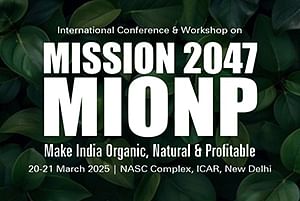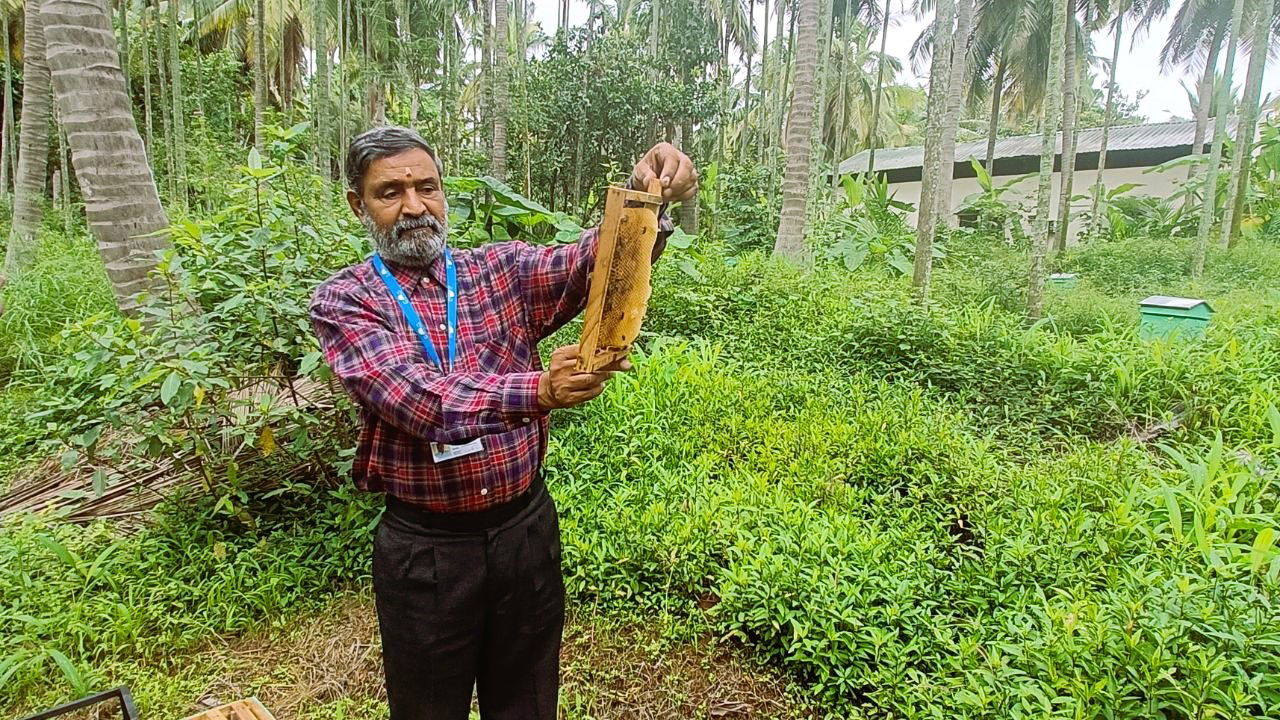
In their search for nectar, bees are playing a critical role in contributing to one-third of the global food production, sustaining farmers’ livelihoods, and feeding mouths in every household. Aren’t these reasons enough to protect them? Although 20,000 varieties of bees pollinate globally, honey bees are the only insects that take as much as they give back to Nature and the ecosystem. A UN report from 2019 tells us that bees contribute to nearly one-third of global food production, and they provide an important source of income for many rural livelihoods.
While several people are studying and creating awareness around the need to preserve bees in our very own city, one among them who has made significant efforts on this front is SR Venkatesh. Through hands-on workshops and awareness campaigns, Venkatesh is empowering farmers and individuals across the country to embrace beekeeping, not only as a means of enhancing agricultural yields but also as a way to reconnect with nature and revive a traditional profession.
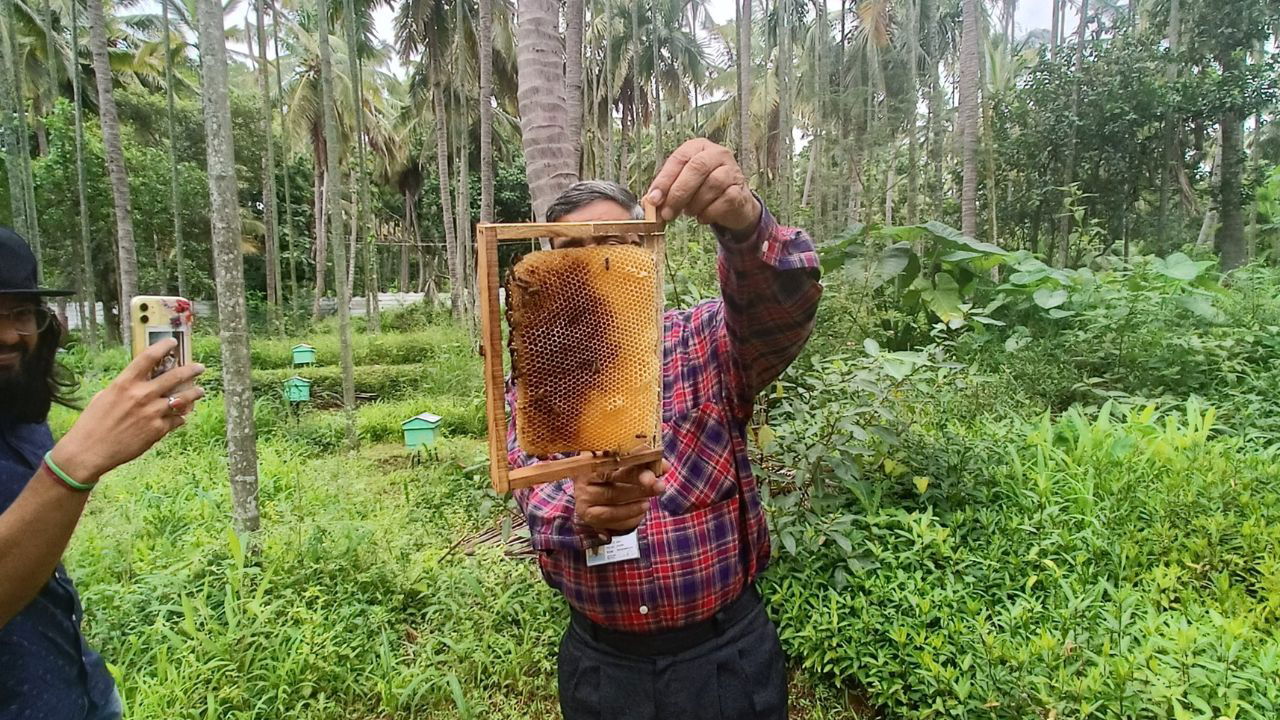
Venkatesh has been passionately involved in beekeeping since 2016. He is the CEO of ‘The Art of Living’s Sri Sri Institute of Agricultural Sciences and Technology Trust,’ and currently manages a model farm in the Art of Living International Center in Bengaluru, while also spearheading regular beekeeping workshops for farmers, architects and others interested in beekeeping from across the country.
Laying A Sweet Plot
You would think Venkatesh had a natural inclination towards this initiative, but he tells us that the story is quite different. “Post-retirement, I pursued my interest in agriculture and worked in promoting natural farming practices through the Art of Living campus at Bengaluru. One day, I met a senior person who asked how many beehive boxes we keep on campus. I wondered why we need beehive boxes when it’s a green campus and has a thriving biodiversity. His response is where my journey in bee preservation began,” he recalls.
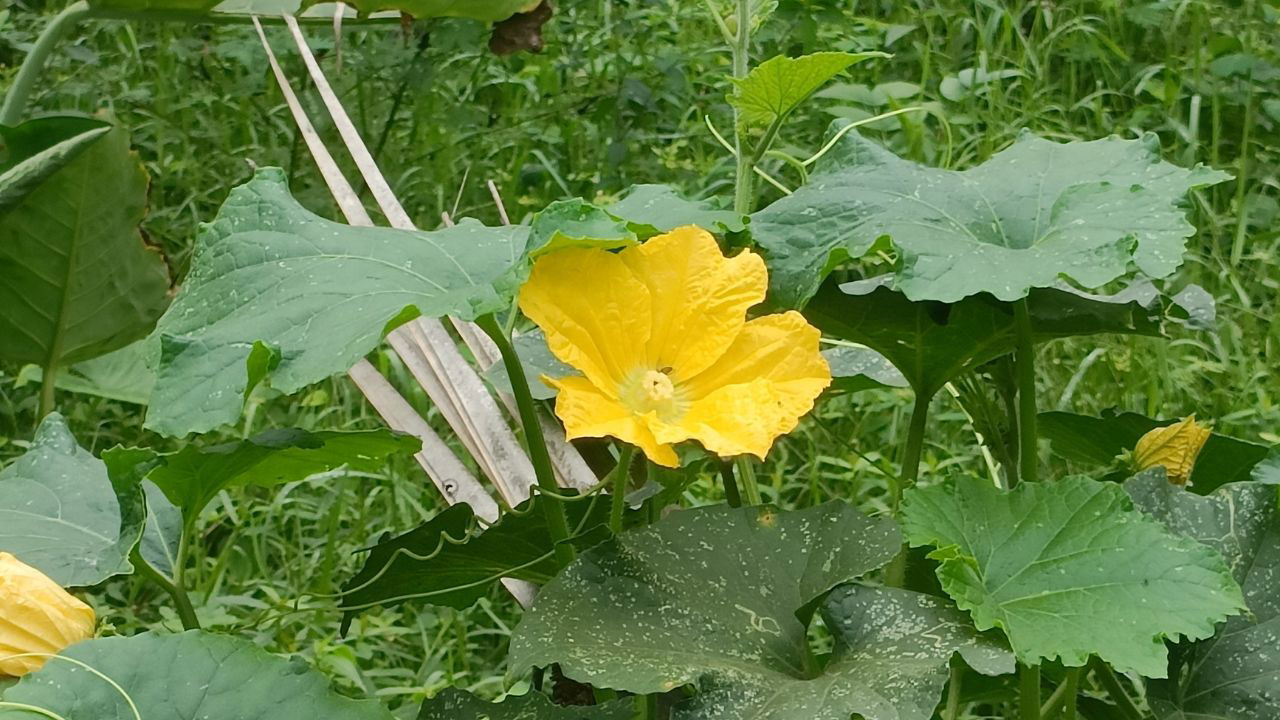
With the onset of the green revolution in the 1960s, farmers started practising chemical farming with the belief that it would provide greater yield. “On the contrary, chemical farming contaminates the soil, water and vegetation, and also kills a host of organisms like insects, birds, and fish,” notes Venkatesh. Especially when these pesticides harm bees, it impacts biodiversity, because they play a critical role in food production and sustaining the livelihood of farmers and all of us who depend on the food produced by the farmers. “75% of agricultural produce depends on honey bees. So, when farmers keep beehive boxes in their farms, they reap 30-40% higher produce along with getting 8-10 kg of honey per beehive box,” he explains.
With this knowledge, Venkatesh and his team initially started by setting up 50 boxes on the campus. Today, that number has multiplied greatly and they have also built a model farm with banana plantations and a sunflower field to encourage people to see the benefits of beekeeping on farms and to learn the art of beekeeping first-hand.
Growing by leaps and bounds
There are several ways in which Venkatesh and his team are creating awareness about beekeeping among a cross-section of people. For one, they are reaching out through several awareness initiatives, where farmers from Karnataka and other States (like Andhra Pradesh, Tamil Nadu and Maharashtra) join their natural farming workshops, Venkatesh and his team dedicate an entire segment to teaching farmers about beekeeping and its benefits on the quality and quantity of farm produce, and the positive impact on their livelihoods.
“The most common concern we get is - we want honey, but we are scared of bee stings. We tell them beekeeping is like meditation. Unless we provoke them, bees will not harm us. They teach us to be disciplined and calm,” he explains.
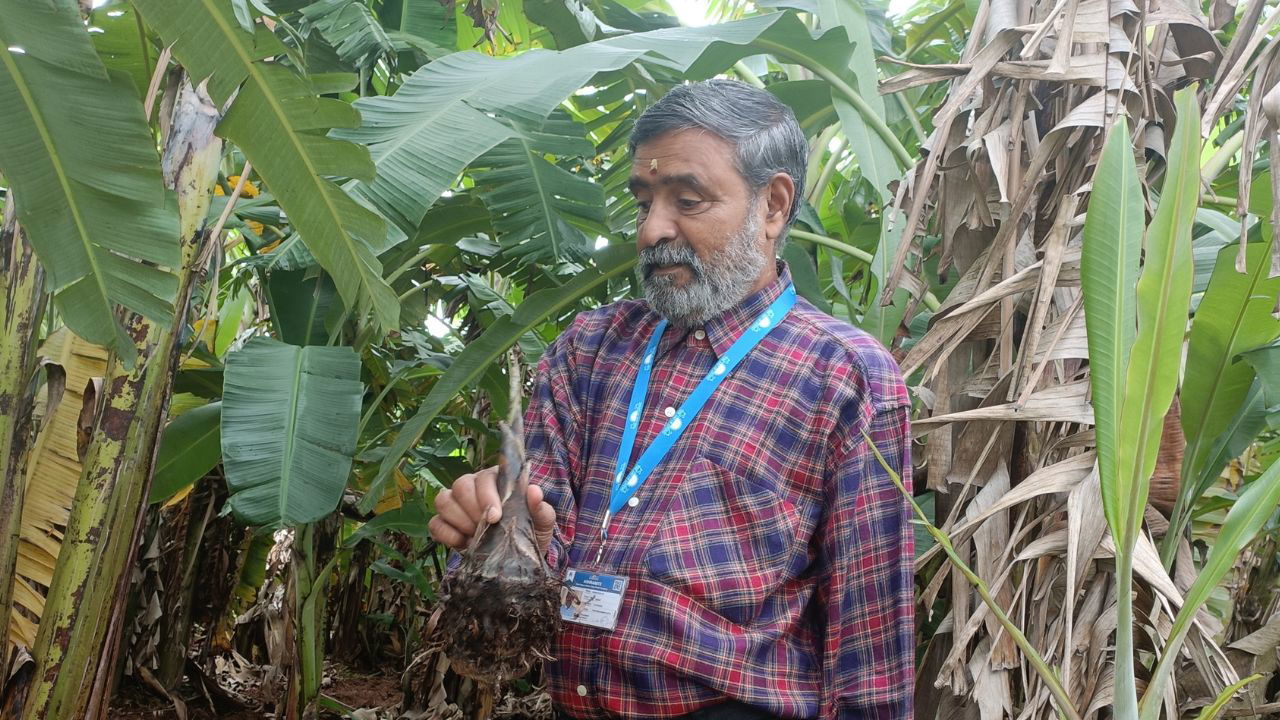
When asked about his vision for the future, Venkatesh tells us that he wants to encourage this practice on three levels. First, he wants youngsters and school-goers to take up beekeeping as a self-employment scheme. Second, through Government schemes, he wants to reach out to farmers to encourage them to enroll for the beekeeping workshops. And third, he wants to revive the beekeeping profession across the country.
“There was a time when beekeeping was a family profession. In Kannada, we call them Jēnusākaṇedāra. But, in the interest of pursuing bigger ambitions, many who practised this for generations have moved away from it. We’d like to revive this profession and train more people to become professional beekeepers,” he says.
He further adds that within his team, several agricultural supervisors have taken up the six-month beekeeping program in IGNOU, and been certified to pursue this profession.







